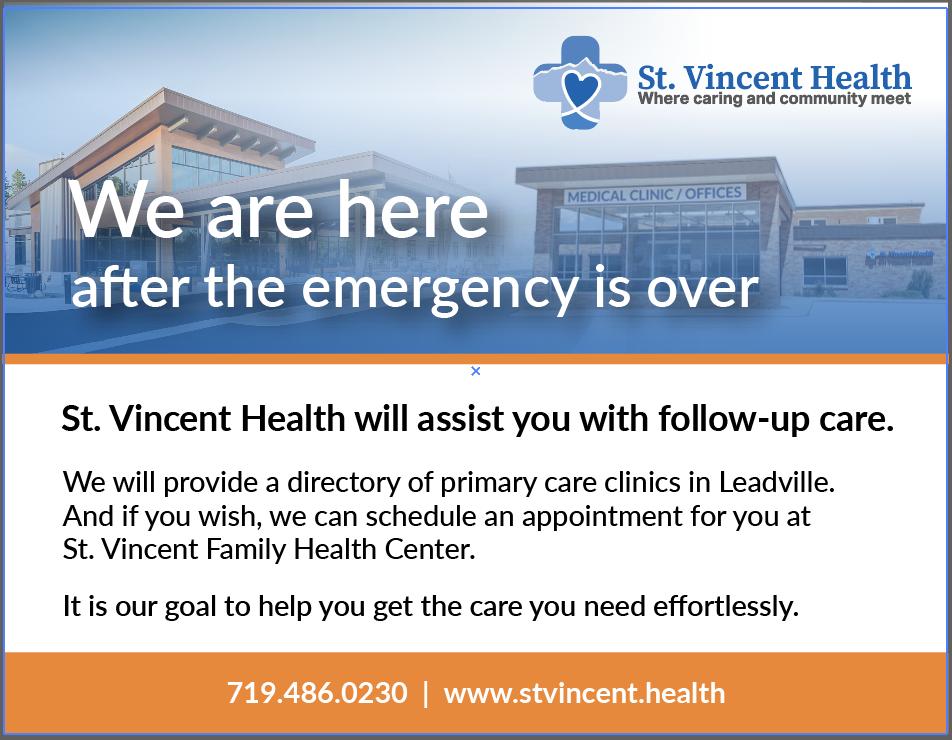Emergency Medicine
If you are experiencing a health emergency, call 911.
St. Vincent Health Emergency Department
Open 24/7
Entrance and additional parking is located around the back of the hospital at 816 W. 4th Street, Leadville, CO.
When you or a member of your family experience a medical emergency, every minute counts. St. Vincent Health’s emergency department is minutes from most locations in Lake County and pre-hospital 911 response is provided by our in-house ambulance department.
Our emergency department, in partnership with CarePoint Health, is staffed by an unparalleled level of highly-trained, board-certified providers available to care for your emergency 24 hours a day, 365 days a year.
From chest pain to broken bones, and so much more, our team provides expert emergency care, and our facility is equipped with the life-saving technology you’d expect from a large hospital.
The St. Vincent Health emergency “door to doctor” time continues to beat statistical norms, at an average of five minutes between arrival and being seen by a provider.
Emergency departments treat patients based on the severity and urgency of a condition. Some of the most common reasons to seek care at an emergency room are:
- Severe chest pain
- Severe abdominal pain
- Wheezing or shortness of breath
- Paralysis
- Severe injury; bone break
- Intestinal bleeding
- High fevers or rash, especially among children
- Vaginal bleeding with pregnancy
- Repeated vomiting
- Poisoning
- Severe head or eye injuries
- Allergic reactions
- Unconsciousness

Follow-up care after an emergency department (ED) visit is important for a variety of reasons, including:
- Assessment: A follow-up visit allows healthcare providers to assess the reasons for the emergency, the outcome, and any changes to the treatment plan.
- Medication management: A primary care provider (PCP) can review medications and make changes as needed.
- Recovery monitoring: Follow-up care helps monitor recovery and prevent complications.
- Psychological aspects: Follow-up care can address psychological aspects of the visit.
- Overall well-being: Follow-up care helps ensure the patient's overall well-being.
- Sustained healing: Follow-up care is essential for sustained healing and preventing future emergencies.
- Mental illness: Follow-up care for people with mental illness is linked to fewer repeat ED visits, improved physical and mental function, and increased compliance with follow-up instructions.
The best practice is to visit for a follow-up within 7 days and no later than 30 days. Follow-up visits can be offered in person or through telehealth.


